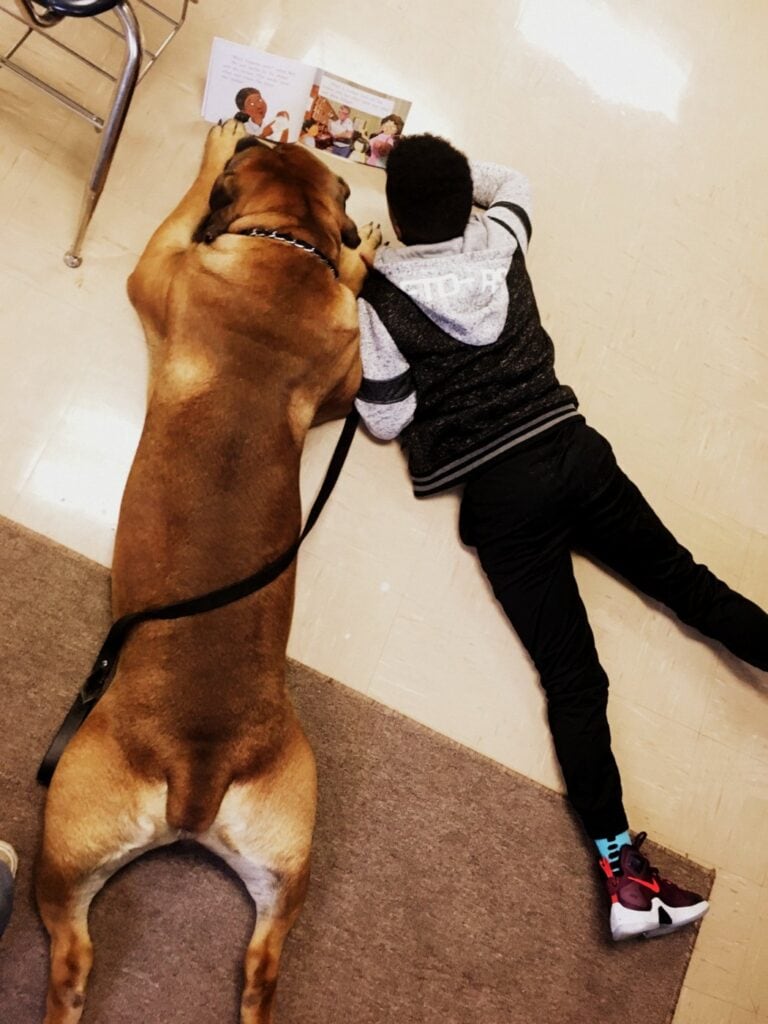It’s termed the “summer slide” — when kids on summer break backslide a bit on the skills they were learning in school.
But there’s one easy way to stop the slide — have a child read aloud to the local attention hound: the family dog.
An adoring audience
Researchers found that second graders who read aloud to a dog over the summer seemed to maintain their reading skills during the “dog days” of summer.
In the pilot study, published by the Cummings School of Veterinary Medicine at Tufts University, second-grade students with a range of reading aptitudes and attitudes toward reading were paired with dogs — or people — and asked to read aloud to them once a week for 30 minutes in the summer of 2010.
At the end of the program, students who read to the dogs experienced a slight gain in their reading ability and improvement in their attitudes toward reading, as measured on the Curriculum-Based Measurement (CBM) and Elementary Reading Attitude Survey (ERAS), respectively–while those who read to people experienced a decrease on both measures.
Another surprising result was the high rate of attrition among students in the control group. Of the original cohort of nine, a third failed to complete the program. No students left the dog-reading group.

A 5-week study
Students in the dog group read to canines enrolled in the Reading Education Assistance Dogs (READ) Program, a non-profit organization that encourages children to read through the use of therapy animals and runs programs at the Grafton public library in Massachusetts.
“As with all academic studies exploring a new area, this small study raises more questions than creates answers,” said Lisa Freeman, DVM, MS, PhD, one of the study’s authors and the research mentor for lead author Dawn Lenihan, a third-year veterinary student.
“The READ program remains very popular among students in the local community, and we look forward to finding out more answers as the program continues.”
The study’s investigators were surprised by the results of the five-week study, which was originally designed to determine if reading to dogs in the summer program helped students with below-average reading abilities. However, for that particular group, no significant improvement was found.









